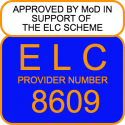Level 4 Diploma in Canine Welfare, Training and Behaviour
MAKE AN ENQUIRY
| Ofqual Code | 610/3509/9 |
|---|---|
| Qualification Level | 4 |
| Guided Learning Hours | 328 |
| Start Date | Anytime |
| Study mode | Online |
| Award type | Diploma - Learners can expect their certification within 6 months of completing the course, following the (EQA) External Quality Assurance of assessment. All course fees, inclusive of all payment plans including our Premium Credit Limited option, must be settled before certification can be ordered. |
| Entry Criteria | Learners are required to have at least three years of work experience in the area of Canine welfare, training and behaviour. Alternatively, learners are required to have successfully completed the Level 3 Award in Canine Behaviour, Welfare and Training. All learners must be a minimum age of 18 to apply for this qualification. |
| Assessment Method | Assessment will take the form of a range of in-depth theory assessments for each unit. Students must provide sufficient evidence that they have the required knowledge, skills and understanding of the assessment criteria. |
| Enrolment will be valid for | You have 24 months to complete your course. |


The Benefits of Understanding Canine Behaviour
The subject of dog training is of great interest to many dog owners and those working or volunteering hands-on with dogs. Understanding dog body language, influences on behaviour and how dogs think is of great benefit to anyone dealing with dogs.
All careers working with dogs require an understanding of canine behaviour, including being able to interpret canine body language, recognising and dealing with unwanted behaviour and preventing problems from occurring.
This understanding is appropriate for everyone in contact with dogs, including dog owners, dog walkers, kennel workers, dog sitters, dog re-homers, animal welfare officers and of course, dog behaviour practitioners.
Unit 1
Canine Behavioural Issues
Learners will gain an understanding of the various types of behavioural issues identified in canines and gain insight into how these behavioural issues can be controlled effectively, through training methods and therapies.
Unit 2
Structure and Functions of Canines
Learners will gain knowledge about the science concerned with the bodily structure of canines, identifying the impact of canine anatomy on behavioural concerns. Learners will explore the significance of various structures of the body such as muscular and skeletal, and recognise physical change in movement that leads to discomfort in canines.
Unit 3
Nutritional Diet for Canines
Learners will be able to acknowledge the origin of important healthy food for canines and understand the importance of a balanced diet. They will understand the process of how food moves through a canine’s digestive tract for overall health and well-being.
Unit 4
Canine Biology
Learners will be able to demonstrate a comprehensive understanding of canine biology, including anatomical structures. Learners will be able to apply this knowledge to analyse and evaluate the behaviour, health and overall well-being of a canine.
Unit 5
Philosophy of Canine Training
This unit will delve into the philosophy of canine training, analysing different approaches and techniques within canine training. Learners will gain a comprehensive understanding of how different philosophies shape the training methods and influence the behaviour of canines. Learners will study the importance of reinforcing behaviour management in canines and understand the source of traditional and instrumental conditioning. Learners will explore the numerous ways of strengthening behavioural techniques and recognise the responsibilities of control in adjusting canine behaviour.
Unit 6
Ownership of Canines
Learners will explore the importance of the role of canine owners including the responsibilities and benefits associated with owning canines.
Unit 7
Physical Activities for Canines
Learners will understand the importance of physical activity with canines. They will study the amount of time which is appropriate for exercise and the impact that physical activity has on canine behaviour. Learners will understand the significance of mental encouragement and improvement in changing behaviour concerns in canines.
Unit 8
Organising a Canine Teaching Programme
This unit will allow learners to recognise the required skills for providing exercise classes resulting in them being able to create a canine teaching plan. Learners will study the purpose of business demands for supervising canine exercise classes.
Unit 9
.
Level 4 Diploma in Canine Welfare, Training and Behaviour
The Level 4 Diploma in Canine Welfare, Training and Behaviour has been designed by industry professionals to provide learners with knowledge and information regarding canine welfare, training and behaviour.
Learners will explore, in detail, how to care for canines, of all sizes, and breeds, safely and correctly in a variety of settings. They will learn ways to identify and address difficult canine behaviour, and how to create a calming atmosphere and good quality care for animals in their care. The qualification material covers all aspects of canine care and welfare including canine anatomy, physiology and nutrition.
This qualification is designed for learners aged 18 and over, who have an interest in learning and developing skills for canine care. This course is suitable for those who may not yet have qualifications in canine care, but instead have sufficient experience within the sector. Or, alternatively, for those progressing on from a level 3 qualification.
As with all of our qualifications, learners are assigned a tutor who will support and guide them throughout their qualification. All of our canine qualifications are developed in consultation with behaviour experts, rescue workers and experienced tutors who all support force-free training.
FAQs
Why do we have entry requirements?
Entry requirements are set by the Awarding Organisation, and ensure that anyone enrolling onto a qualification has the foundations of knowledge and academic study requirements to enable them to progress onto the appropriate level of study.
What happens if I don’t meet the entry criteria?
Don’t worry! We offer the qualification that you need to meet the entry requirements, you can take the levels as a package.
What can be used as acceptable evidence of entry requirements?
Acceptable evidence includes:
-
Qualification certificates with transcripts (lists of units taken).
-
Confirmation from college/ university of achievement (including Awarding Organisation, qualification title, level and units) if certificates are not yet processed.
Or,
-
Proof of at least 3 years of work experience within the canine care sector, e.g. employer references.
Register My Interest

GET YOUR NUS EXTRA/ TOTUM CARD
All students who complete qualifications from level 3 or above are eligible for the NUS extra / Totum Card, which gives you access to over 200 UK student discounts with brands like Co-op, Amazon and ASOS. Apply and find out more at https://www.totum.com/
















